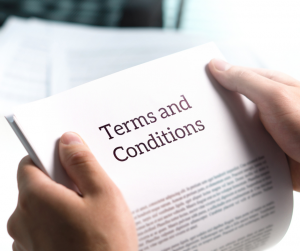Health and safety at work: What every business must know
Health and safety are at the heart of protecting businesses and employees. Today, on National Health and Safety at Work Day, it’s vital to reflect on what steps we take to keep workplaces safe. Without strong policies, companies risk fines, accidents, and reputational damage. Let’s explore how to strengthen your approach to health and safety and protect your workforce.
Why health and safety policies are essential
A strong health and safety culture helps businesses build trust and resilience. When you protect your team, you also protect your operations, finances, and reputation. In the event of emergencies, the right actions can even save lives. However, maintaining compliance is not just about legal requirements. It shows that you value your employees’ wellbeing every day.
This is particularly important for growing businesses. When your team feels safe, they are more likely to stay, perform better, and contribute to your success.
Health and safety and fire extinguisher readiness
One overlooked area of health and safety is fire extinguisher use. Many businesses invest in extinguishers but fail to train staff properly. During a fire, knowing how to react can prevent costly damage and injuries.
It is important to:
-
Recognise different types of extinguishers, such as Class A for wood and paper or Class E for electrical fires.
-
Understand that using the wrong extinguisher could worsen the situation.
-
Follow the simple PASS method: Pull, Aim, Squeeze, Sweep.
Training your team ensures they are ready to act if needed. Still, if a fire becomes dangerous, evacuation must be the priority. Lives should always come first.
Health and safety during workplace medical emergencies
Medical emergencies can happen at any time. Therefore, businesses must ensure their teams are ready to respond calmly and correctly.
Important first actions include:
-
Calling 999 immediately for professional support.
-
Providing first aid only if you are trained to do so.
-
Avoiding unnecessary movement of injured employees to prevent harm.
Different emergencies require different responses. For seizures, employees should be rolled onto their side and hazardous objects removed. For bleeding, apply pressure without removing blood-soaked cloths. During a heart attack, keeping the employee calm and seated can make a difference. Quick, informed action can save lives.
Health and safety and maintaining a safe workplace
Keeping a safe workplace is a continuous effort. Health and safety training is not a one-off activity. Businesses must review safety procedures regularly, keeping them up-to-date and relevant.
Here are some essential tips:
-
Update fire extinguisher training every year.
-
Offer refresher first aid courses to staff.
-
Regularly test emergency equipment and evacuation procedures.
-
Encourage a culture where employees report hazards early.
Maintaining clear policies also demonstrates to insurers that you are a low-risk business. This can support better insurance terms and protect you financially if a claim arises.
How Robison & Co supports your health and safety efforts
At Robison & Co, we understand how important health and safety are to business success. Strong safety procedures protect your people, but they also safeguard your future. Our bespoke insurance solutions are designed to work alongside your internal policies to give you full peace of mind.
We help you by:
-
Offering tailored business insurance that reflects your real risks.
-
Providing risk management advice to improve workplace safety.
-
Supporting policyholders with claims when accidents happen.
Your business deserves protection that works as hard as you do. That is why, at Robison & Co, we are by your side, helping you prepare for whatever the future holds.
To discuss a new or existing policy, please get in touch with us via one of the options below!







